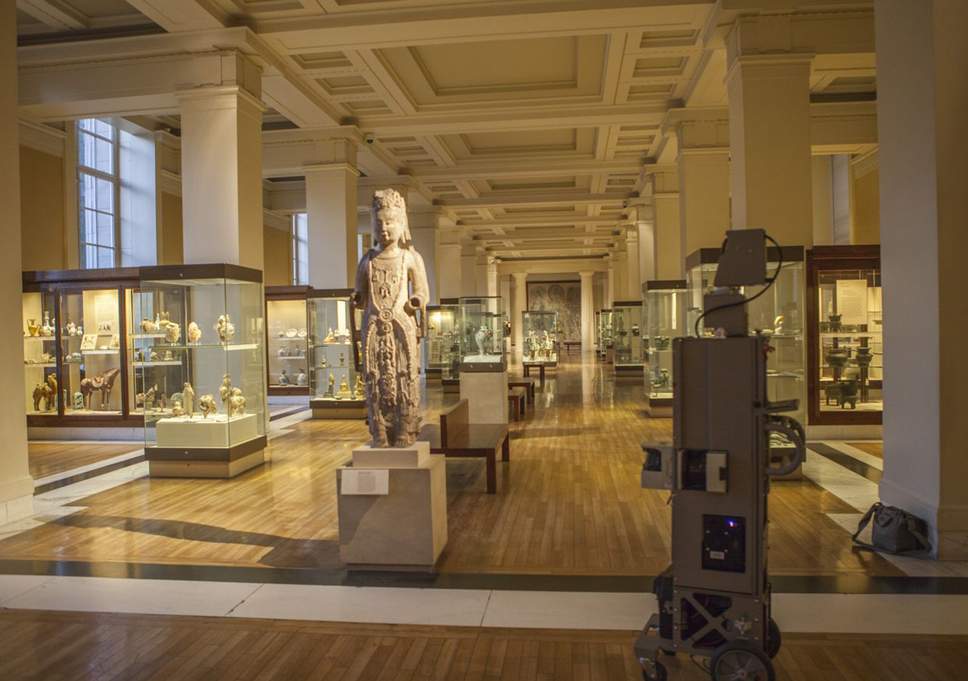
Project Museum
The Museum is focusing attention on the post-Civil War transition of enslaved people to freedom by making the records of the Freedmen’s Bureau accessible online. Seek Your Ancestors in the Civil War EraThe United States Bureau of Refugees, Freedmen, and Abandoned Lands, commonly known as the Freedmen's Bureau, was created by Congress in 1865 to assist in the political and social reconstruction of post-war Southern states and to help formerly enslaved people make the transition from slavery to freedom and citizenship. In the process, the Bureau created millions of records that contain the names of hundreds of thousands of formerly enslaved individuals and Southern white refugees.The Museum, in collaboration with FamilySearch International, has indexed the individual names found in the Bureau records. In Phase 1, we are releasing records from Delaware, Maryland, North Carolina, Virginia, and Washington, D.C. Phase 2 will include the remaining states of Alabama, Arkansas, Georgia, Louisiana, Tennessee, Texas, Mississippi, Kentucky, Missouri, South Carolina and Florida. The Freedmen’s Bureau Transcription ProjectThe Museum has collaborated with the to transcribe more than 1.5 million image files from the Freedmen’s Bureau records. Metroid prime hunters map.
The Transcription Center is a platform where digital volunteers can transcribe and review transcriptions of Smithsonian collections. The Freedmen’s Bureau Transcription Project is the largest crowdsourcing initiative ever sponsored by the Smithsonian.Once completed, the Freedmen’s Bureau Transcription Project will allow that provide access to both images and transcriptions of the original records. Family historians, genealogists, students, and scholars around the world will have online access to these records. In addition, these transcribed records will be keyword searchable, reducing the effort required to find a person or topic. Transcribing these original documents will increase our understanding of the post-Civil War era and our knowledge of post-Emancipation family life. History of the Freedmen's BureauCongress established the Bureau of Refugees, Freedmen and Abandoned Lands in 1865 to assist in the reconstruction of the South and to aid formerly enslaved individuals transition to freedom and citizenship.
Research projects British Museum staff are constantly engaged in new research all over the world, from archaeological excavations or studies with modern communities to applying new scientific techniques or studying objects and works of art. The Project on Government Oversight was quoted as saying, “Whenever we see leaders that cultivate political influence for a particular party unexpectedly receive major government contracts, and it sends up red flags,” It is implied that there are a whole lot of warning flags, and lots of explaining that isn’t approaching.
Princess isabella game. Administered by the War Department, the Bureau followed the department’s war-inspired record-keeping system. These handwritten records include letters, labor contracts, lists of food rations issued, indentures of apprenticeship, marriage and hospital registers and census lists. They provide a unique view into the lives of newly freed individuals and the social conditions of the South after the war.The Bureau was responsible for providing assistance to four million formerly enslaved individuals and hundreds of thousands of impoverished Southern whites.
Project Gutenberg is a library of over 60,000 free eBooks. Choose among free epub and Kindle eBooks, download them or read them online. You will find the world's great literature here, with focus on older works for which U.S. Copyright has expired.

Thousands of volunteers digitized and diligently proofread the eBooks, for enjoyment and education.Looking for something to read? Project Gutenberg eBooks are mostly older literary works. Most were published before 1924, with some published in the decades after. Use one of the Search methods on this page, or try using the to browse by genre, age group, and topic.New website available for testing.
Visit (or ) to test the site (it may have occasional outages, as improvements are made). There is a page that lists some known issues, and part of the motivation for the change. If you visit the new website, please consider providing your input and suggestions via an afterwards.No fee or registration! Everything from Project Gutenberg is gratis, libre, and completely without cost to readers. If you find Project Gutenberg useful, please consider a small, to help Project Gutenberg digitize more books, maintain our online presence, and improve Project Gutenberg programs and offerings. Other ways to help include, or.No special apps needed! Project Gutenberg eBooks require no special apps to read, just the regular Web browsers or eBook readers that are included with computers and mobile devices.
There have been reports of sites that charge fees for custom apps, or for the same eBooks that are freely available from Project Gutenberg. Some of the apps might have worthwhile features, but none are required to enjoy Project Gutenberg eBooks.Find Free eBooks in the Project Gutenberg Library. by keyword or field, also 'Latest' and 'Random' eBooks.
with all search fields and categories. by author, title, subject, language and categories; full-text search. and. of related eBooks. of eBook listings and metadata. Visit, for free eBooks by contemporary authors.Help and Information.: Using Kindle, Nook, cell phone, and other mobile devices and readers.: In depth information about many topics.How to Help. (or, see ).
Getting started is easy, and just a page a day will help!. Help record audio books.Special areas.: About Project Gutenberg. What does 'free eBook' mean?.: Linking to Project Gutenberg.: Downloading many items at once.: Donating to Project Gutenberg.Terms of Use.